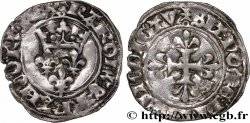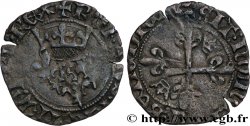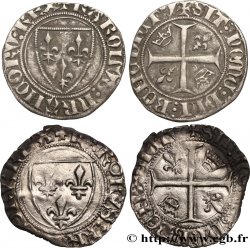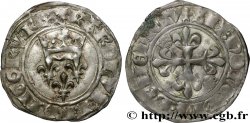正面
正面的文字 + KAROLVS: FRANCORV: REX, (O RONDS, N ROMAINE, PONCTUATION PAR DEUX ANNELETS POINTÉS SUPERPOSÉS).
正面的说明书 Écu de France.
正面的翻译 (Charles, roi des Francs).
背面
背面的文字 + SIT: NOME: DNI: BENEDICTV, (O ROND, N ONCIALES OU ROMAINES, PONCTUATION PAR DEUX ANNELETS POINTÉS SUPERPOSÉS).
背面的说明书 Croix cantonnée aux 1 et 4 d'une couronne, aux 2 et 3 d'un lis.
背面的翻译 (Béni soit le nom du Seigneur).
评论
历史细节
CHARLES VI LE FOU ou LE BIEN AIMÉ / THE BELOVED or THE MAD
(09/16/1380-10/21/1422)
Born in Paris in 1368, Charles VI was the son of Charles V and Jeanne de Bourbon. In 1380, Louis d'Anjou exercised the regency, Burgundy and Berry the guardianship of the royal children. Charles V's advisers were kept in power. But Louis had his expedition to Italy financed by the royal coffers to recover the succession of the Angevins of Naples. An era of unrest began: great schism in the West from 1378, urban revolts in Languedoc, Italy, England and Germany, soon in Flanders, Paris and Rouen. From 1383, the royal power regained the upper hand and the repression was terrible. In January 1383, the provostship of merchants was united with the provostship of Paris and the jurisdictions of trades dissolved. In 1382-1384, Jean de Berry restored order in Languedoc. In January 1384, Philippe le Hardi, Duke of Burgundy, became Count of Flanders on the death of his father-in-law Louis de Male and in 1385 married the young king to Isabeau of Bavaria.. In 1388, Charles VI dismissed his uncles and recalled his father's advisers (Bureau de La Rivière, Jean Le Mercier, Jean de Montagu), the "Marmousets" and put Louis II of Anjou or Orléans at the head of the council. , son of Louis I, died in 1384, who took the title of King of Jerusalem and Sicily. In August 1392, during an expedition against Brittany, Charles VI went mad. The Marmosets were expelled from the Council. Louis of Anjou and the king's uncles, Berry and Bourgogne, seized power. Philip the Bold makes peace with England and marries Richard II to Isabella of France. But, in 1399, the Duke of Derby became King of England under the name of Henry IV: everything had to be started again.. Philip the Bold, who died in 1404, was succeeded by his son John the Fearless, hero of the Nicopolis Crusade, who soon came up against Louis of Orleans.. On November 23, 1407, the Duke of Orleans was assassinated on leaving the Hôtel Barbette. His son Charles allied himself with the great feudal lords of the South, the Constable Charles d'Albret and Count Bernard VIII of Armagnac, forming the so-called "Armagnacs" party.. In 1412, the Duke of Burgundy, who had rallied the Parisians through demagogic measures, entered the capital. Since 1411, the Burgundians had been allied with the English, who landed in Cotentin in 1412. In 1413, the Estates General met in Paris, under the control of the Burgundian party, to prepare an ordinance of reform. A Parisian riot, of the so-called "Cabochiens" party, stopped the process. In August, the Duke of Burgundy left Paris and the Duke of Orleans returned there.. However, Henry V, King of England since 1413, landed at the mouth of the Seine. In October 1415, he decided to reach Calais. The army of Charles VI blocked his way. The battle took place at Agincourt on October 25, 1415. The French chivalry was cut to pieces; the Dukes of Orleans and Bourbon fell into the hands of Henry V. In 1417, the French fleet was destroyed at La Hougue, in 1418 Henri V seized Normandy. On May 29, 1418, Paris fell back to the power of the Burgundians.. The dolphin Louis barely escaped. On September 10, 1419, a reconciliation meeting took place between Jean sans Peur and the Dauphin; the Duke of Burgundy was stabbed there. The Burgundian party now turned definitively to England. After negotiations between Franco-Bourguignons and English, in Arras, the peace treaty was sealed in Troyes on May 21, 1420: Henry V married the daughter of Charles VI and Isabeau of Bavaria, became regent of the kingdom and the dolphin Charles was deprived of his rights. In August 1422, Henri V died in Vincennes, Charles VI followed him to the grave the following October. The Duke of Bedford became regent of France and England for the young King Henry VI, while the dauphin, who had taken refuge in Bourges, proclaimed himself king under the name of Charles VII..







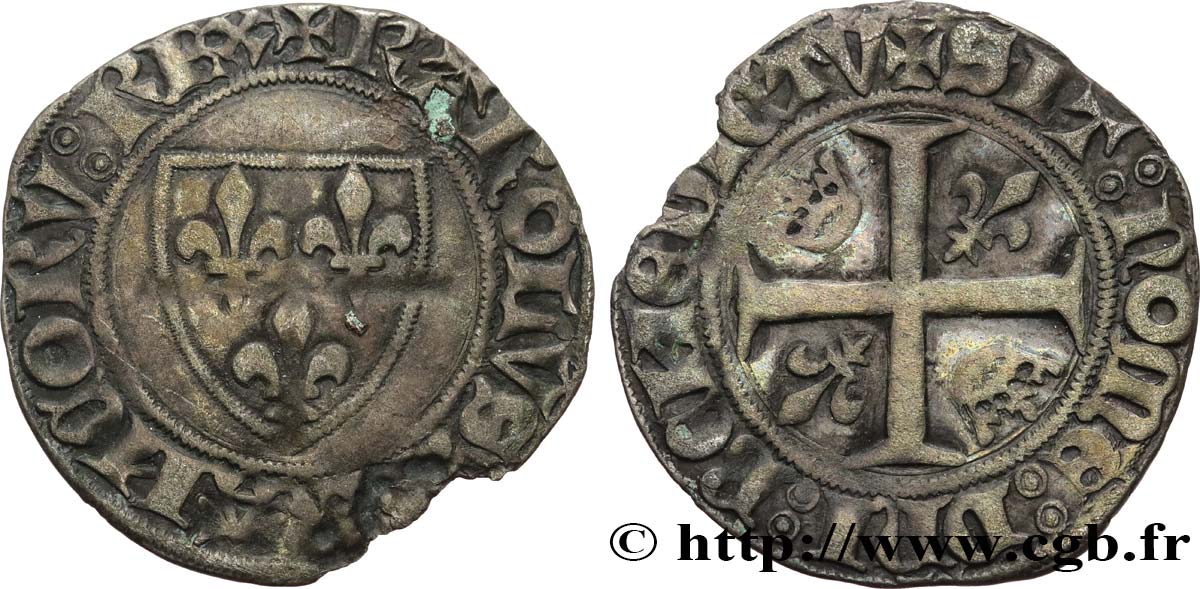
 对产品描述纠错
对产品描述纠错 打印
打印 分享我的选择
分享我的选择 提问
提问 Consign / sell
Consign / sell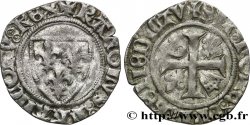
 产品介绍
产品介绍